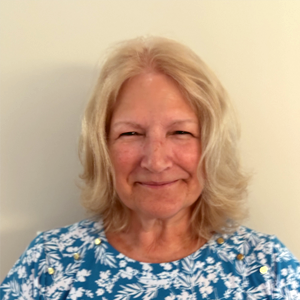Psychology: Bachelor of Science

Program Overview
The Bachelor of Science in Psychology program is designed to prepare students with the knowledge, skills, and competencies for diverse career possibilities within the field of psychology as well as graduate study. The program provides students with a foundation of knowledge along with communication, analytical, and research skills within an ethical multicultural framework essential for succeeding in both professional and educational endeavors. Students build foundational knowledge and skills in core areas and individualize their program through program electives and experiential learning, including a capstone course, optional concentrations, and internship possibilities.
Program Outcomes
Upon successful completion of the Bachelor of Science in Psychology, students will be able to:
- Describe key concepts, principles, and overarching themes in psychology.
- Use scientific reasoning to interpret psychological phenomena.
- Apply ethical standards to evaluate psychological science and practice.
- Demonstrate effective communication for different purposes.
- Apply psychological content and skills to career goals.
Scholarships available
Earn your degree for a fraction of the price.
As of Fall 2023, students with an incoming GPA of 2.5 or above and with 60 credits accepted for transfer into a baccalaureate program are eligible for a $100 discount per course, not to exceed a total of $2,000, for as long as the student continues to pursue the same baccalaureate degree program. Please note that the eligibility requirement of 2.5 GPA or above is only for applications received after June 30, 2023. All previous agreements will be honored. QC has the final determination on qualifications, award amount, and application of the award.
Have questions or want to apply for the program? Please contact:
The Admissions Office
admissions@quincycollege.edu | 617-984-1710
Student Resources:
- Academic Advising: (617) 984-1720
- Dean’s Office of Liberal Arts: (617) 405-5920
- Financial Aid Office: (617) 984-1620
- Registrar’s Office: (617) 984-1650
- Student Accessibility and Academic Support Services: (617) 405-5915
Psychology: Bachelor of Science Courses
-
Code
Course
Credits
-
- BIO 111
General Biology I w/Lab
- 4
-
- CSI 101
Introduction to Computers
- 3
-
- ENG 101
English Composition I
- 3
-
- ENG 102
English Composition II
- 3
-
- HSV 260
Diverse Populations
- 3
-
- SOC 101
General Sociology
- 3
-
- PSY 101
General Psychology
- 3
-
- PSY 215
Abnormal Psychology
- 3
-
- PSY 216
Growth & Development
- 3
-
- PSY 221
Health Psychology
- 3
-
- PSY 280
Research Design & Methodology
- 3
-
- PSY 305
Personality
- 3
-
- PSY 311
Cognition
- 3
-
- PSY 330
Social Psychology
- 3
-
- PSY 350
Group Dynamics
- 3
-
- PSY 413
Adolescent Psychology
- 3
-
- PSY 421
Psychology of Emotion
- 3
include cultural influences, developmental trajectories, evolutionary foundations, neurology, pathologies, self- regulation, and social relationships. Prerequisites: PSY 101 and PSY 280. -
- PSY 442
Cultural Psychology
- 3
-
- PSY 499
Psychology Capstone
- 3
Psychology: Curriculum
General Education Requirements (40 credits)
| Course | Title | Credits |
|---|---|---|
| CSI 101 | Introduction to Computers | 3 credits |
| ENG 101 | English Composition I | 3 credits |
| ENG 102 | English Composition II1 | 3 credits |
| History/Government Core | 3 credits | |
| IDS 167 | First Year Seminar | 3 credits |
| MAT 107 | Statistics | 3 credits |
| BIO 111 | General Biology | 4 credits |
| SOC 101 | General Sociology | 3 credits |
| PSY 101 | General Psychology | 3 credits |
| Humanities Electives | 6 credits | |
| General Education Electives | 6 credits |
Program Requirements (42 credits)
| Course | Title | Credits |
|---|---|---|
| PSY 215 | Abnormal Psychology1 | 3 credits |
| PSY 216 | Growth & Development | 3 credits |
| PSY 211 | Health Psychology | 3 credits |
| PSY 280 | Research Design & Methodology1 | 3 credits |
| HSV 260 | Diverse Populations | 3 credits |
| EXP 297 | Internship or Program Elective | 3 credits |
| PSY 311 | Cognition1 | 3 credits |
| PSY 305 | Personality1 | 3 credits |
| PSY 330 | Social Psychology1 | 3 credits |
| PSY 350 | Group Dynamics | 3 credits |
| PSY 413 | Adolescent Psychology | 3 credits |
| PSY 421 | Psychology of Emotion | 3 credits |
| PSY 442 | Cultural Psychology | 3 credits |
| PSY 499 | Psychology Capstone | 3 credits |
| Key | |
| 1 | Indicates course requires the completion of a prerequisite. |
Program Electives (21 credits)
Note: Students are required to take 21 credits from the list below, according to their interests. Students are not required to take a specific number of credits in any category.
See table below for Program Electives.
Justice, Equity, Diversity & Inclusion
| Course | Title | Credit |
|---|---|---|
| HSV 200 | Human Behavior and the Social Environment | 3 |
| PSY 331 | Psychology of Gender | 3 |
| SOC 316 | Intercultural Communications | 3 |
| SOC 355 | Race. Class, Gender, and Social Justice | 3 |
Cognition
| Course | Title | Credits |
|---|---|---|
| PSY 210 | Psychology of Learning | 3 |
| PSY 317 | Sensation and Perception | 3 |
| PSY 419 | Consciousness | 3 |
| PSY 481 | Advanced Research Seminar | 3 |
Development
| Course | Title | Credit |
|---|---|---|
| PSY 103 | Child Development | 3 |
| PSY 301 | Child Psychology | 3 |
| SOC 140 | Aging in America | 3 |
Social Psychology and Personality
| Course | Title | Credit |
|---|---|---|
| PSY 300 | Positive Psychology | 3 |
| SOC 203 | Sociology of the Family | 3 |
Integrated Behavioral Health
| Course | Title | Credit |
|---|---|---|
| HSV 201 | Counseling Skills | 3 |
| HSV 205 | Substance Addiction Counseling | 3 |
| PSY 230 | Sport Psychology | 3 |
| PSY 307 | Psychology of Change | 3 |
| SOC 320 | Sociology of Health, Illness, & Medicine | 3 |
Open Electives (18 credits)
Psychology: Semester Path
Recommended course of study for a full-time student. It is recommended that students speak to an Academic Advisor before registering for courses each semester.
Semester 1
| Course | Title | Credits | Pre-Requisites |
|---|---|---|---|
| IDS 167 | First Year Seminar | 3 | Pre-Requisites |
| ENG 101 | English Comp I | 3 | |
| CSI 101 | Introduction to Computers | 3 | |
| PSY 101 | General Psychology | 3 | |
| MAT 107 | Statistics | 3 | Appropriate Placement Score or Completion of MAT 097 |
| Total | 15 |
Semester 2
| Course | Title | Credits | Pre-Requisites |
|---|---|---|---|
| HSV 260 | Diverse Populations | 3 | |
| PSY 216 | Growth and Development | 3 | |
| ENG 102 | English Composition II | 3 | ENG 101 |
| BIO 111 | General Biology | 4 | |
| SOC 101 | General Sociology | 3 | |
| Total | 16 |
Semester 3
| Course | Title | Credits | Pre-Requisites |
|---|---|---|---|
| PSY 215 | Abnormal Psychology | 3 | PSY 101 |
| PSY 280 | Research Design & Methodology | 3 | PSY 101, ENG 101, & MAT 107 |
| Humanities Elective | 3 | ||
| History/Government Core | 3 | ||
| PSY 330 | Social Psychology | 3 | PSY 101 and SOC 101 |
| Total | 15 |
Semester 4
| Course | Title | Credits | Pre-Requisites |
|---|---|---|---|
| PSY 311 | 3 | PSY 101 Recommended PSY 280 |
|
| PSY 305 | 3 | PSY 101 & PSY 280 | |
| Pillar 1 Elective1 | 3 | ||
| Pillar 5 Elective1 | 3 | ||
| Humanities Elective | 3 | ||
| Total | 15 |
Semester 5
| Course | Title | Credits | Pre-Requisites |
|---|---|---|---|
| Pillar 1 Elective1 | 3 | ||
| Pillar 2 Elective1 | 3 | ||
| Pillar 3 Elective1 | 3 | ||
| EXP 297 | Internship or Program Elective | 3 | |
| Open Elective | 3 | ||
| Total | 15 |
Semester 6
| Course | Title | Credits | Pre-Requisites |
|---|---|---|---|
| Pillar 2 Elective1 | 3 | ||
| Pillar 3 Elective1 | 3 | ||
| Pillar 4 Elective1 | 3 | ||
| General Education Elective | 3 | ||
| Open Elective | 3 | ||
| Total | 15 |
Semester 7
| Course | Title | Credits | Pre-Requisites |
|---|---|---|---|
| PSY 481 | Advanced Research Seminar2 | 4 | PSY 280 (C/73% or higher) |
| Pillar 4 Elective1 | 3 | ||
| Pillar 5 Elective1 | 3 | ||
| Open Elective | 3 | ||
| Open Elective | 3 | ||
| Total | 16 |
Semester 8
| Course | Title | Credits | Pre-Requisites |
|---|---|---|---|
| PSY 499 | Psychology Capstone 2 | 3 | PSY 481 (C/73% or higher) |
| Open Elective | 3 | ||
| Open Elective | 3 | ||
| Additional Program Elective | 3 | ||
| General Education Elective | 3 | ||
| Total | 15 |
We encourage students to speak to an Academic Advisor before registering for courses each semester.
Make an Advising Appointment
advising@guincycollege.edu | (617) 984-1720
Have questions or want to apply for the program? Please contact:
The Admissions Office
admissions@quincycollege.edu | (617) 984-1710
Faculty Profiles
 Carol DiFalco, Ph. D., LMHC
Carol DiFalco, Ph. D., LMHC
Education:
Ph.D. in Counseling and Psychology, Lesley University
M.S. in Psychology, Clinical Mental Health, Springfield College
B.S. in Biology, Springfield College
Dr. DiFalco is a Licensed Mental Health Counselor (LMHC) and professor of psychology with more than two decades of experience in various clinical and education settings, bridging the worlds of clinical counseling, research, and pedagogy. Dr. DiFalco believes critical thinking and analytical skills are a student’s compass and map for their intellectual journey. These skills empower students to explore the depths of human behavior and emotion, to question conventional wisdom, and to dissect complex phenomena with precision.
At Quincy College, she teaches various courses in the Psychology Program, including Cultural Psychology, Group Dynamics, Psychology of Gender, and Psychology of Change. Her research focuses on advancing critical forms of community engagement curriculum by understanding the relationship between educators and their critical consciousness development. Through her work, she explores meaningful ways educators create bridges between communities to ensure equitable and socially just learning opportunities.
Carol is an outdoor enthusiast who enjoys hiking through conservation lands and open-water paddle boarding off the shores of Cape Cod, where she resides with her family.
 Kenneth Texeira, Ph.D.
Kenneth Texeira, Ph.D.
Education:
Ph.D. in Applied Developmental Psychology, Fordham University
B.S. in Psychology, University of Massachusetts, Amherst
Dr. Texeira is a professor of psychology and has taught at both our Quincy campus and Plymouth campuses for 15 years. He has received various teaching and mentorship awards and has worked in healthcare settings as a researcher and scientist.
He has published 10 articles in medical journals focused on increasing patient satisfaction and quality of life. He is currently producing a documentary on the Veteran Fishing Team he founded which is a peer-to-peer support group that aims to reduce isolation, raise awareness about mental health and foster blue economy skills.
 Robert Newell, D.S.W.
Robert Newell, D.S.W.
Education:
D.S.W., University of Kentucky
M.B.A., Fitchburg State University
M.S.W., Boston University
B.S. in Social Work and Psychology, Roberts Wesleyan College
Dr. Newell has worked as a clinical social worker for more than 25 years working in residential treatment, schools, private practice, and in healthcare and has been employed both as a clinician and in social work management. He has provided all levels of social work care on the micro, mezzo, and macro levels.
Dr. Newell teaches courses in diversity, human behavior, policy, counseling skills, and addictions. He encourages students to think critically about social issues while building on their strengths. Dr. Newell has served as an adjunct faculty member at the University of Kentucky teaching courses in both the undergraduate and graduate social work programs. He also enjoys skiing, hiking, and mountain biking in his free time.
 Thomas Connolly, Ph.D.
Thomas Connolly, Ph.D.
Education:
Ph.D in I/O Psychology, Adler University
M.S. in I/O Psychology, Stevens Institute of Technology
M.B.A. in Finance, New York University
M.A. in Healthcare Administration, University of Phoenix
B.A. in Psychology, University of Connecticut
Dr. Connolly has extensive for-profit experience as a corporate executive, change manager, and entrepreneur. He spent 25 years as a Wall Street executive, focusing on turnarounds and guiding organizations through transformational change. He has served on curricular-advisory boards at Suffolk University and Bunker Hill Community College and on the advisory boards of two successful startups, Patheer and Ignyte AI (where he was co-founder).
As a post-doctoral fellow at Adler University, his work focused on structural barriers to workplace equity, metacognitive decision structures and workplace civility. His prior published research addresses work/family role conflict and managing high-velocity change. Dr. Connolly teaches a range of classroom and online courses including Introductory Psychology, Life-span Developmental Psychology and Research Methods.
 Henry Rubin, Ph.D.
Henry Rubin, Ph.D.
Education:
Ph.D. in Sociology, Brandeis University
M.A. in Sociology, Brandeis University
B.A. in Sociology and Psychology, University of California, Santa Cruz
Dr. Rubin has been with Quincy College for over 18 years. He has served as the Dean of the college’s Liberal Arts Division, the Chair of the Assessment Committee, and the Co-director of First Year Seminar. Previously, he has taught at Harvard University and Tufts University. His research and teaching specialties include Sociology of the Media, Gender Studies, Interpersonal Communication and Group Dynamics. He has three cats and enjoys cycling, gardening, and the beach.
 Fahri Ercem, MA
Fahri Ercem, MA
Education:
M.A. in Sociology, Northeastern University
M.A. in Social Anthropology, Cumhuriyet University, Türkiye
B.A. in Sociology, Middle East Technical University, Türkiye
Fahri Ercem is an experienced educator with a strong background in sociology and cultural anthropology, teaching for over 30 years. Currently, Fahri serves as an adjunct faculty member at Bunker Hill Community College and Quincy College. He has taught various sociology and cultural anthropology courses at Northeastern University, Middlesex Community College, and Massasoit Community College. His expertise includes curriculum development and teaching a wide range of sociology courses, focusing on global change, diversity, social inequalities, and world cultures. Additionally, Fahri has worked in the Office for Diversity Inclusion and Community Partnership (DICP) at Harvard Medical School for more than 20 years in various roles. In his free time, he enjoys reading and writing poetry, listening to jazz, and cooking.
 Kerry Leary, M.Ed.
Kerry Leary, M.Ed.
Education:
M.S. in Equity, Diversity and Social Justice Leadership, Tuft University
M.Ed. in Education Leadership, American International College
M.A. in Counselor Education, Bridgewater State University
B.A. in Psychology, Bridgewater State University
Kerry has 18 years as a school and crisis counselor, 5 years as a school administrator, and 18 years as an adjunct professor. Additionally, Kerry has spent a combined 6 years as a private mental health professional.
Kerry’s teaching is rooted in the belief that every student has the potential to learn and grow, regardless of their abilities or challenges. Kerry is committed in creating a supportive and inclusive learning environment that respects individual differences and fosters a sense of belonging. Kerry’s approach emphasizes the significance of understanding the brain and mental health, utilizing this knowledge to guide students in overcoming obstacles and achieving their full potential.
 Brian Sasso, MA, LMHC
Brian Sasso, MA, LMHC
Education:
M.A. in Counseling Psychology, Remington College
B.S. in Sociology, University Massachusetts Amherst
Brian is an adjunct professor of psychology at Quincy College & has taught there since 2009. In addition, Brian has taught other courses within the school of Liberal Arts; including Human Service & Sociology.
Brian is a full-time employee of Quincy Public Schools and holds a School Adjustment Counseling license & school counseling license through the Department of Elementary and Secondary Education (DESE). These licenses allow him to work within an at-risk student population. Brian is also licensed through Allied Mental Health, as a Licensed Mental Health Counselor. Brian works as an independent therapist with adults who are experiencing challenges.
 Becky DelVecchio, Ph.D.
Becky DelVecchio, Ph.D.
Education:
Ph.D. in Early Childhood Education, UMass Boston
PMC in Research Policy and Practice in Early Childhood Education, UMass Boston
M.Ed in Integrating the Arts into Curriculum, Lesley University
B.S. in Early Childhood Education, University System of New Hampshire
Becky has over 25 years of experience in teaching young children and adults in diverse and dynamic settings. Her current work focuses on supporting pedagogical leadership from within the early childhood education workforce. She also has special interest and expertise in the benefits of, and barriers, to nature play for all children and families.
 Gayl Crump Swaby. Ed.D.
Gayl Crump Swaby. Ed.D.
Education:
Ed.D, Nova Southeastern University
M.S.W., Boston University
B.S.W. in Social Work, Oakwood University
In addition to teaching at Quincy College, Dr. Crump Swaby is a Professor of Practice in the Clinical Mental Health Counseling program at Springfield College. With over three decades of clinical experience in diverse settings such as schools, community centers, and private practices, she brings a wealth of expertise to her role. Her work with a variety of populations has cultivated a deep understanding of mental health challenges, making her an invaluable mentor for aspiring counselors.
At Quincy College, Dr. Swaby has taught courses on substance addiction, gerontology, diversity, and human behavior. Her teaching philosophy emphasizes inclusivity, critical thinking, and practical skill development. A published author of two books focused on culturally responsive mental health treatment, Dr. Swaby is dedicated to preparing culturally competent clinicians.
Beyond her academic and clinical roles, Dr. Swaby enjoys traveling, music, gardening, and spending time with family.
 Brenda K. Kimball, MA
Brenda K. Kimball, MA
Education:
M.A. in Counseling, Johnson State College
B.A. in Education/Counseling, Johnson State College
Administrator License (Principal), Lyndon State College
Professor Kimball began teaching as an adjunct faculty member at Quincy College in the fall of 2017. She has taught classes in both the Psychology and Sociology departments. Brenda began her career in Vermont as a School Counselor, Director of Guidance, and Principal. She is currently a full-time School Adjustment Counselor for Canton Public Schools, where she is also an active member of our school’s Diversity, Equity, and Inclusion Committee. She is a member of the American School Counselors Association and the Massachusetts School Counselors Association. She enjoys spending time with her two elementary-aged granddaughters and walking the beach with her dog, Allie.

View Current Semester Courses>>
Start your education at Quincy College this fall. Our online and blended curriculum makes it easy for you to stay safe and earn your degree!
You might also be interested in...
-

Liberal Arts: Behavioral Science
The Quincy College Liberal Arts Behavioral Science Concentration provides the student with a breadth of program offerings in the chosen field of study
-

Liberal Arts: Social Sciences
The Quincy College Liberal Arts Program is to provide the student with a breadth of program offerings in a chosen field of study.
-

Courses
View the current course schedule. Quincy College offers the programs you want, the flexibility you need and the price that makes it all possible.


